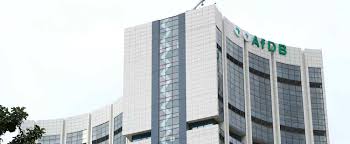FG Partner AfDB to Supercharge Nigeria’s Economy and Create Over 1.5 Million Jobs with $650 million annually
FG Partner AfDB to Supercharge Nigeria’s Economy and Create Over 1.5 Million Jobs with $650 million annually
By Achimi Muktar
In what experts are calling a game-changing financial commitment, the African Development Bank Group (AfDB) has rolled out a bold new strategy that will pump an eye-popping $650 million annually into Nigeria's economy from 2025 to 2030.
Revealed in a statement on the Bank’s website, the five-year Country Strategy Paper (CSP) is not just another aid plan — it's a high-impact roadmap set to transform Nigeria’s infrastructure, empower youth and women, and create over 1.5 million jobs in one of Africa’s largest economies.
In total, the AfDB is committing $2.95 billion over the first four years, with an additional $3.21 billion expected from development partners through co-financing — bringing the strategy’s initial financial muscle to more than $6 billion.
So what’s the plan?
The Bank is focusing on two key pillars:
Building climate-smart, sustainable infrastructure to boost Nigeria’s competitiveness and industrialization.
Driving inclusive, green growth that targets women, youth, and small businesses through job creation and agricultural transformation.
According to the AfDB, the strategy directly addresses Nigeria’s $2.3 trillion infrastructure gap, targeting critical areas like roads, electricity, water systems, and agribusiness — all with an eye on climate resilience and long-term sustainability.
“This strategy takes a transformative partnership between the Bank and Nigeria to a new level,” said Abdul Kamara, Director General of AfDB’s Nigeria Country Department. “We are not just building roads and power systems — we are building pathways to prosperity for millions of Nigerians.”
The plan is also aligned with Nigeria’s top policy blueprints — Agenda 2050, the National Development Plan 2021–2025, and the Renewed Hope Agenda — and aims to boost the country’s participation in the African Continental Free Trade Area (AfCFTA) by improving trade-enabling infrastructure and market access.
Beyond infrastructure, the strategy goes deep into people-focused development. Women entrepreneurs will receive special backing under AfDB’s Affirmative Finance Action for Women in Africa (AFAWA), while young Nigerians will be equipped with the skills needed to tackle rising unemployment.
Micro, small, and medium-sized enterprises (MSMEs), state governments, and rural communities will benefit from improved access to finance, better supply chains, and vocational training that will open new business doors.
But it’s not just about the economy. The AfDB’s approach is also tackling Nigeria’s environmental vulnerabilities by promoting greener, more resilient infrastructure and agriculture. This could help reduce devastating climate impacts like floods and droughts, while also lowering tensions from farmer-herder conflicts.
With the economy aiming to double to $1 trillion, this investment strategy may well be Nigeria’s ticket to a prosperous, inclusive, and climate-smart future — and the world is watching.


















